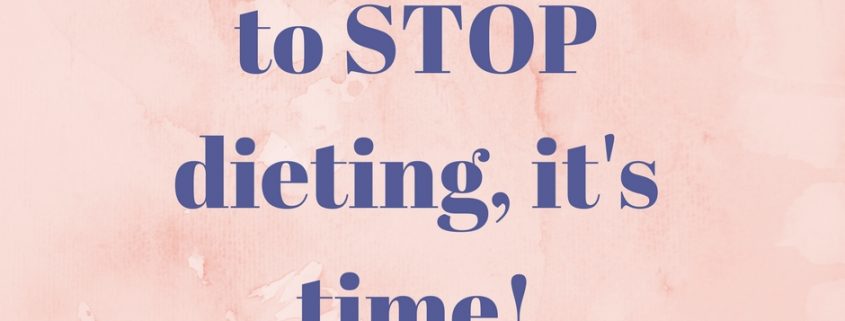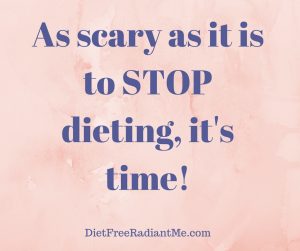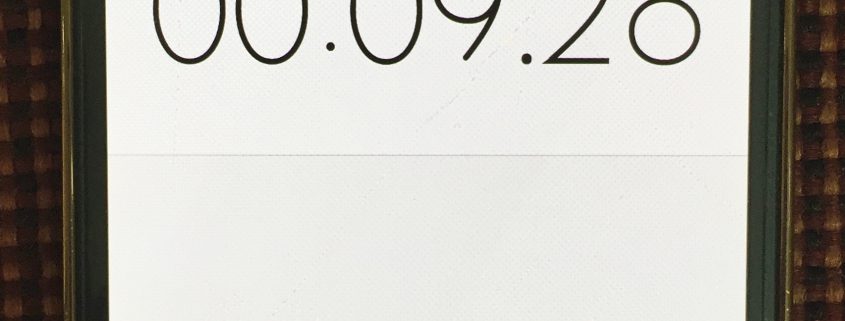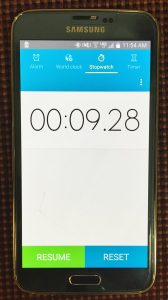What Do You Do When You’re Just Not Hungry?
 Interesting question, isn’t it? I teach intuitive eating to women and men who are tired of dieting. And their initial understanding of intuitive eating is to “eat when hungry and stop when full”. But the question I hear all the time is “so if I’m not hungry, I shouldn’t eat?”
Interesting question, isn’t it? I teach intuitive eating to women and men who are tired of dieting. And their initial understanding of intuitive eating is to “eat when hungry and stop when full”. But the question I hear all the time is “so if I’m not hungry, I shouldn’t eat?”
The answer is yes, and no. Allow me to explain.
To Eat or Not to Eat
When you are coming off dieting, it’s very possible that your hunger signals are silenced. That means they are there, but you don’t hear them. You probably only hear them when you are realllly hungry and your brain is screaming at you “feed me, feed me, I’m starving.” But when the first signals of hunger begin, you probably don’t hear them.
This means you need time to attune to them, to recognize them and to answer them. So, if several hours have passed since you’ve eaten and you don’t necessarily hear those gentle signs of hunger, then yes, it is important for you to eat anyway as part of your self-care plan of nourishing yourself throughout the day.
On the other hand, if you have become familiar with those gentle signs of hunger and “lunch time” comes around and you don’t feel hunger, then it’s totally cool to wait until you feel and hear the hunger.
Remember, “lunch time” as dictated by a clock is still dieting.
Silenced Hunger Signals
There are several reasons why your hunger signals may have silenced. Here’s the top 3:
- Dieting: You’ve been dieting for a while and you begin your meals based on when the diet tells you to eat. Even if you’re not hungry, you stop and eat to “stay on plan”.
- Numbing: You decide to drink a non or low caloric beverage such as coffee, tea, diet soda or water INSTEAD of eating because even though you are hungry, you’re not “supposed” to eat now so you’ll drink instead. The fluid then numbs your signals and tries to fool your body into thinking you ate. But there’s no fooling your brilliant body.
- Chaos: You don’t make the time to hear your hunger signals because you are so busy running around working, chauffeuring the kids to their extra curricular activities, shopping etc… So you push off eating and before you know it, you don’t hear those signals anymore.
Can Hunger Signals Return?
Yes, absolutely yes! You need to practice listening for them and they will return. It’s important to be patient with yourself as you learn to reacquaint yourself with your body.
First Step?
Pop your name and email into the boxes below and start to break the spell that diets have over you. Then, you’ll have the space to work on reigniting your hunger signals.

















